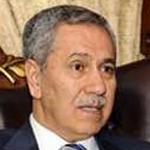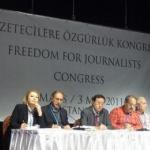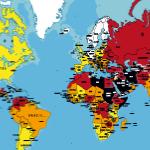Journalists in prison and internet censorship in Turkey were two topics on the agenda of the SPEAK UP! Freedom of Expression and Media in the Western Balkans and Turkey conference hosted by the European Commission in Brussels on 6 May.
From Turkey, Assoc. Prof. Yaman Akdeniz from the Bilgi University Faculty of Law was invited as well as bianet project advisor Nadire Mater, communications lawyer Fikret İlkiz, journalist Andrew Finkel who was laid-off by Zaman newspaper a while ago, Hacı Boğatekin as the owner of the local Gerger Fırat newspaper, President of the Contemporary Journalists Association (ÇGD) Ahmet Abakay and Hürriyet newspaper writer Sedat Ergin.
A total of 480 participants were invited to the conference. The Secretary General of Reporters without Borders (RSF), Jean-Francois Julliard, and Yaman Akdeniz were among the panellists. It was criticized that only a relatively low number of people from Turkey were allowed to speak on violations of press freedom.
A group of journalists and lawyers posted English banners reading "Immediate freedom now", "Freedom for Journalists" and "Turkey is on 138th position in the World Press Freedom Index".
Jerzy Buzek, President of the European Parliament, pointed out that even an excellent constitution can be insufficient when it comes to freedom of thought. He said that the retreat of press freedom and freedom of expression observed in Turkey and in the Balkans was unacceptable.
The European Commissioner for Enlargement and European Neighbourhood Policy, Stefan Füle, expressed three main points of concern in respect to press freedom, i.e. political interference, economic pressure and violence against the media.
"We are taking the concerns on press freedom and freedom of expression voiced by our colleagues in Turkey especially very serious. I am also concerned about the laws in Turkey that have not been harmonized with the Convention on Human Rights. The laws do not protect freedom of expression sufficiently".
"Further concern is fuelled by the ongoing detention of journalists in the scope of trials where access to evidence is denied. There is no transparency what the imprisonment is actually based on. These are important questions that need to be answered".
The OSCE Representative on Freedom of the Media, Dunja Mijatovic, also pointed to the worrying situation of the current picture in Turkey. "The experiences from Turkey raise anger", she said.
Lawyer Fikret İlkiz underlined that journalists Nedim Şener and Ahmet Şık had been interrogated on their journalistic work, their news, writings and books before they were arrested on 6 March. İlkiz referred to Article 12 of the Press Law that stipulates, "The owner of the periodical, responsible editor, and owner of the publication cannot be forced to either disclose their news sources or to legally testify on this issue". According to the lawyer, both Şener's and Şık's rights were violated in the course of the interrogations.
"Even as lawyers we are not able to obtain certain documents of the investigation file because of a decision of confidentiality. This cannot be called a fair trial".
Abakay criticized the EU for their late reaction against these violations. He announced that most of the detained journalists are tried on the basis of the Anti-Terror Law. This regulation was aggravated by the government in 2006, Abakay claimed. (EÖ/VK)















